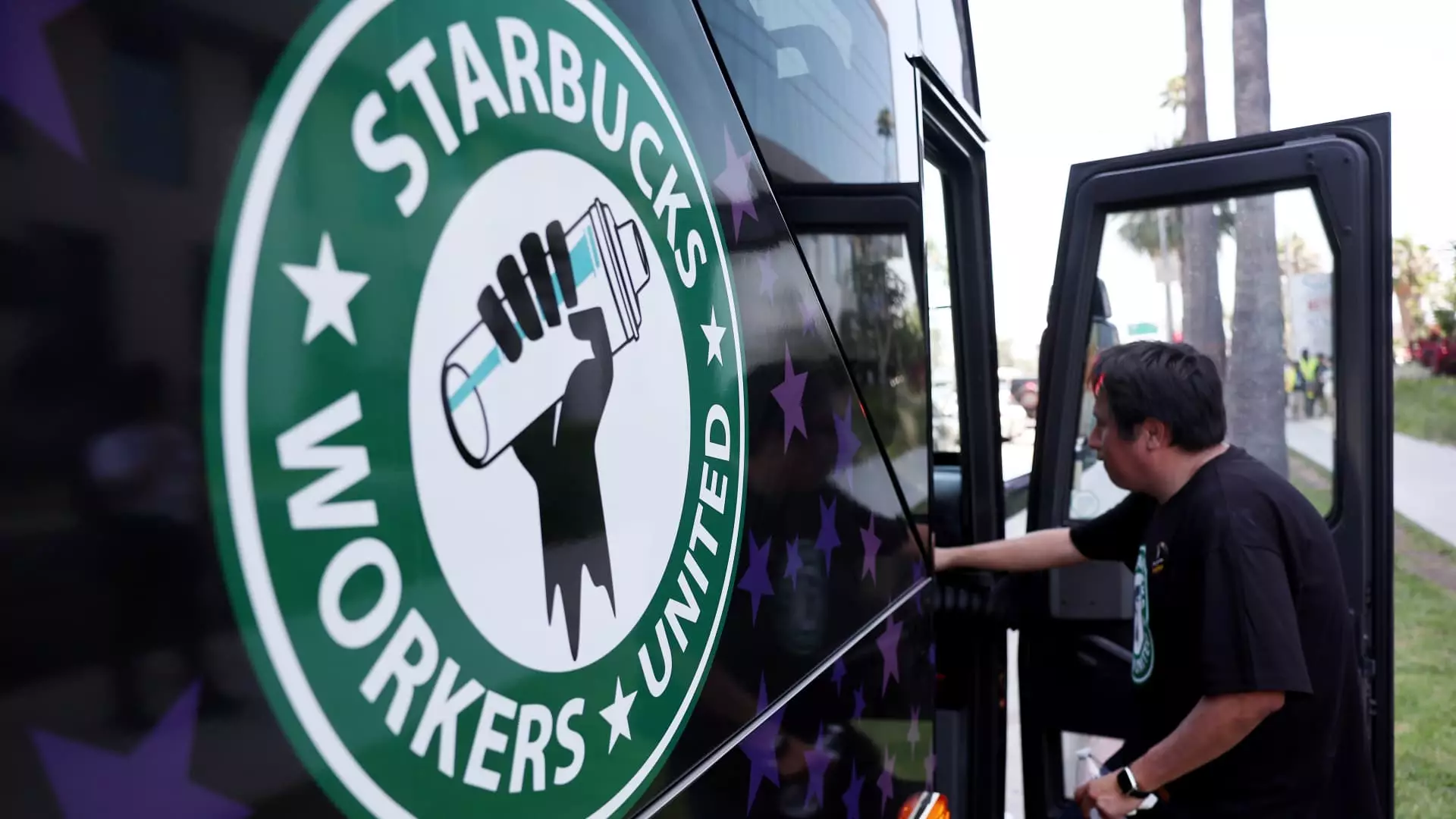Recent developments indicate that the unionization efforts within Starbucks are intensifying, as Starbucks Workers United announced on Tuesday that an overwhelming 98% of union baristas voted in favor of a strike authorization. This decision arises from ongoing frustrations regarding contract negotiations with the coffee giant, aiming to secure better wages and benefits for front-line workers. As representatives prepare to return to negotiations in the final scheduled meeting of the year, the atmosphere remains tense and uncertain.
Starbucks and Workers United have dedicated significant effort to negotiations throughout the year, with both sides participating in numerous bargaining sessions and proposing tentative agreements. However, issues surrounding hundreds of unresolved unfair labor practice claims highlight ongoing disputes that further complicate the relationship between the company and its employees. The union contends that Starbucks has yet to deliver a comprehensive proposal that adequately addresses the essential concerns of baristas regarding pay and benefits. This situation reflects the complexity of labor relations where promises and perspectives differ sharply between the parties involved.
In a response to the union’s latest claims, Starbucks has expressed disappointment over the potential strike, framing the negotiations as productive. The company emphasized its commitment to reaching a foundational framework for an agreement, pointing to progress made over the past months. Starbucks hailed over eight multi-day bargaining sessions as a testament to their cooperative engagement, boasting thirty meaningful agreements as a result. Yet, this optimism contrasts starkly with the union’s perspective, demonstrating how both parties can perceive the same set of events through vastly different lenses.
The current climate surrounding Starbucks’s labor relations has followed a turbulent trajectory. Initially, the company adopted confrontational tactics to quash the burgeoning union movement across its locations. This prompted public backlash, leading to high-profile testimonies from executives, including former CEO Howard Schultz, in front of Congress. This tension witnessed a temporary thaw earlier in the year, highlighting a fleeting moment of constructive engagement through mediation — phenomena that seem to be slipping once again into a cycle of labor unrest.
The newly appointed CEO, Brian Niccol, has voiced intentions to engage in good-faith negotiations, seeking a cooperative approach in resolving disputes. However, his recent announcement to double paid parental leave juxtaposed against reports of reduced annual pay increases signals the complexity of balancing employee needs with the company’s financial plight in the current economic environment. This context raises questions about how sustainable Starbucks’s commitment to negotiations will be, especially as the union movement continues to gain traction.
The wave of unionization within Starbucks reflects broader trends in the labor movement, showcasing workers’ desires for fair treatment and equitable wages. As negotiations continue, the unfolding narrative at Starbucks serves as a critical case study of the modern labor landscape and the challenges inherent in labor-management relations. The outcome of these negotiations will undoubtedly have lasting implications, not only for baristas but for the future of labor in the fast-paced service industry.

